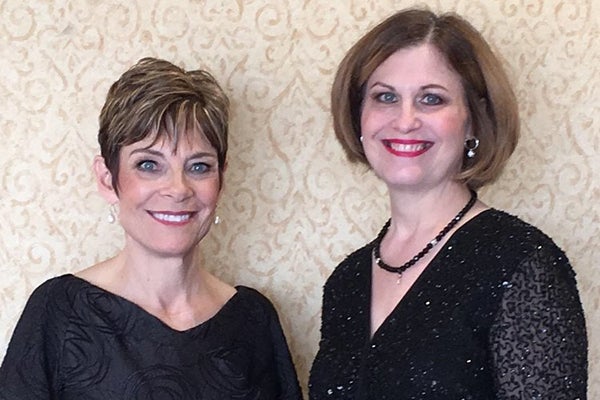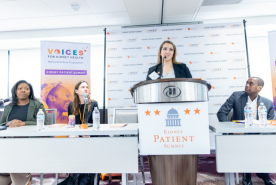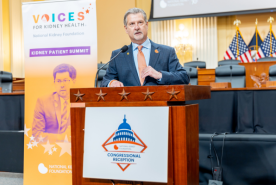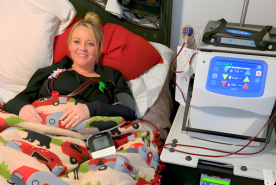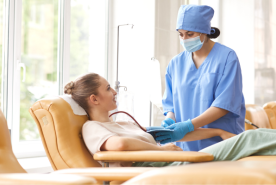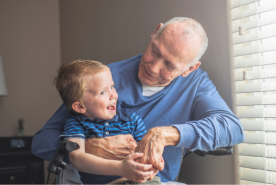Health systems, social systems, and environmental factors Treatments and therapies Kidney groups Healthcare system navigation and patient advocacy Dialysis Transplant recipients Peritoneal dialysis
March 09, 2018
<div>Years ago, Shannon was prescribed Lithium to treat her bipolar disorder. Her doctors told her it could harm her kidneys, but after years of struggling with bipolar it was a risk she was willing to take.</div>
By Katelyn Engel, NKF Program Manager
Years ago, Shannon was prescribed Lithium to treat her bipolar disorder. Her doctors told her it could harm her kidneys, but after years of struggling with the disorder it was a risk she was willing to take. “I would take it again. It was life altering for me [in a good way].”
Over the years her doctor monitored her creatinine levels regularly to watch her kidney function and Shannon took other steps to take care of her kidneys (drinking plenty of water, eating a low-sodium diet rich in fruits and vegetables). Eventually though, the medication did damage her kidneys and she faced starting dialysis or a kidney transplant. Although her doctors had been monitoring her kidney function for years, her kidney failure was still unexpected and upsetting. “I remember I was driving down Interstate 94 and talking to my doctor on the phone, and when he said transplant I nearly drove into the median. I was so shocked,” Shannon recalls.
Shannon started doing peritoneal dialysis at home. Thankfully she was able to transition to a different medication for her bipolar disorder without having problems.
She also started telling people about her kidney problems. She says, “I never specifically asked people to consider donating, but I was open with them about my health issues. I told them ‘This is what is happening in my life.’” Amazingly, people started coming forward as potential donors. “I think there were about 15 people that offered.” Eventually the best match was found in Shannon’s friend Molly. And, after 7 months of dialysis, Shannon finally got her transplant.
It's nine years later and her kidney is still doing well.
When we asked her what advice she had for others preparing for a transplant, she said, “Right after the transplant I think I felt worse. It takes a while to feel better. Some people think it will be immediate, but it's not magic. It's surgery. Your body has to recover. It takes a while.” She also recommends talking to others who have been through the same experience. “Before I started on peritoneal dialysis, I talked to someone who had done that kind of dialysis before. And before I got my transplant, I spoke with another transplant recipient. It just really helped me to know what to expect.”
Shannon also recalls the help she received from friends and family before and after her transplant. “I’m lucky I have such great friends and family. They were a big support. And, I had the luxury of not having to return to work right away. They held my job and gave me all the time I needed to recover and feel better.” Shannon encourages those who know someone going through CKD, dialysis, or a transplant to be supportive as well. Things like getting a card in the mail or having a meal prepared for you is a huge help. Offering to walk their dog, clean their house, or watch their kids for a few hours go a long way.
Shannon is also grateful for an excellent medical care team. “They were supportive, knowledgeable and helpful. They explained things clearly, so I would know what to expect. They worked as a team and were there for me when I needed them.”
“I feel so lucky to have gotten a transplant so quickly,” Shannon says. But she knows not everyone is as lucky as she is, and so she tries to give back. She has been an NKF volunteer for several years and has participated in our Kidney Walk raising thousands of dollars for our programs, services and research. This week, Shannon was in Washington DC advocating for CKD patients and kidney donors on Capitol Hill. And, she is always happy to share her story and provide guidance to anyone facing the challenge of CKD, dialysis or transplant.
